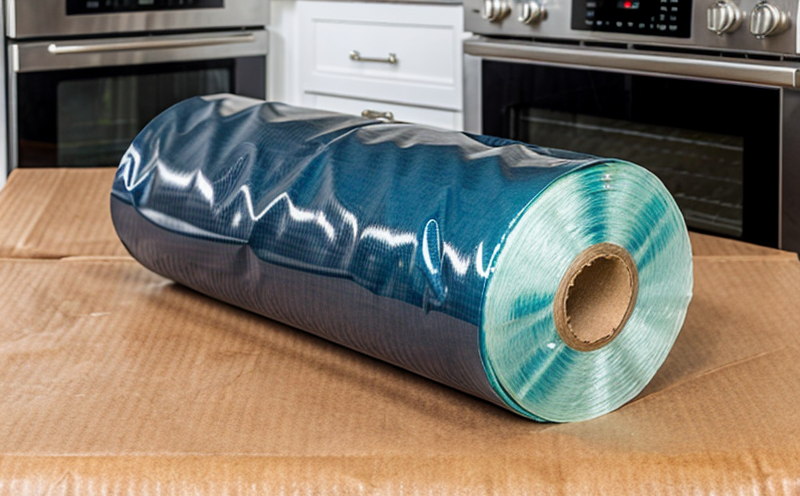EN 15344 Recycled Polypropylene Wrap Testing
The European Standard EN 15344, specifically addresses the mechanical and physical properties of recycled polypropylene (rPP) wraps used in various household applications. This service is crucial for manufacturers, suppliers, and quality assurance teams who need to ensure their products meet stringent environmental and performance criteria set forth by this standard.
The testing process under EN 15344 involves a series of comprehensive assessments aimed at evaluating the durability, flexibility, tensile strength, and tear resistance of rPP wraps. These tests are critical for verifying that recycled materials can perform satisfactorily in household environments without compromising safety or utility.
The standard applies to a wide range of products including food storage containers, trash bags, and other protective covers designed for use within the home. Compliance with EN 15344 not only ensures that these products meet environmental standards but also enhances consumer trust by demonstrating commitment to sustainable practices.
Test Parameters: The testing procedure under EN 15344 involves several key parameters which include tensile strength, tear resistance, elongation at break, and puncture resistance. Each of these tests provides valuable insights into the mechanical integrity of rPP wraps, helping to identify any potential weaknesses that could impact product performance.
Specimen Preparation: Specimens for testing are typically cut from actual products or produced under controlled conditions to simulate real-world usage. The specimens must be free from defects and represent a fair cross-section of the material being tested. Proper preparation is essential as it directly influences the accuracy and reliability of test results.
Instrumentation: High-precision testing equipment such as tensile testers, puncture testers, and tear strength analyzers are used to perform these tests. These instruments are calibrated regularly to ensure consistent and accurate measurements. The use of advanced technology ensures that the data collected is precise and can be relied upon for making informed decisions about product quality.
Reporting: After completion of all required tests, detailed reports are generated which summarize findings including numerical values, graphical representations, and interpretative comments. These reports serve as critical documentation that can help guide ongoing improvements in material selection and manufacturing processes.
| Test Parameter | Description |
|---|---|
| Tensile Strength | Measures the maximum force a material can withstand before breaking. |
| Elongation at Break | The percentage extension of the sample before it breaks under stress. |
| Tear Resistance | Determines how resistant a material is to tearing along a specific seam or cut. |
| Puncture Resistance | Assesses the ability of a material to resist penetration by sharp objects. |
Industry Applications: Recycled polypropylene wraps find extensive use in numerous household applications, including food storage containers and trash bags. These products must be durable yet flexible enough to maintain their integrity under typical home conditions such as temperature fluctuations, exposure to moisture, and occasional abrasion.
- Food Storage Containers: Ensuring that wraps provide adequate protection against contamination while retaining freshness.
- Trash Bags: Critical for maintaining hygiene and preventing odors in waste management systems.
International Acceptance and Recognition: Compliance with EN 15344 is highly valued by international bodies and regulatory agencies. It ensures that products meet rigorous standards set forth to promote sustainability and consumer safety.
- Achieves global recognition for sustainable manufacturing practices.
- Serves as a benchmark for industry leaders in the plastics sector.
Environmental and Sustainability Contributions: By adhering to EN 15344, companies contribute significantly towards reducing waste and promoting recycling initiatives. This aligns with broader environmental goals aimed at minimizing negative impacts on ecosystems.
- Promotes the use of recycled materials which reduces reliance on virgin resources.
- Encourages innovation in material science to develop more efficient recycling methods.





